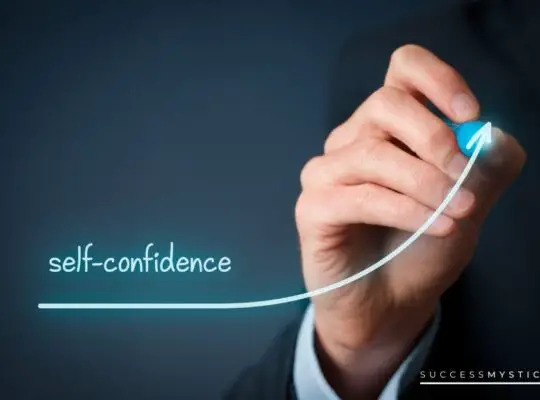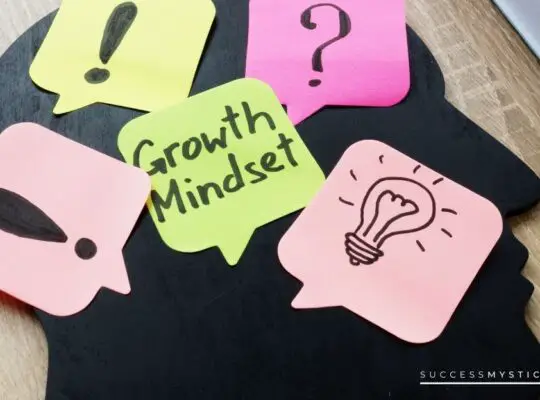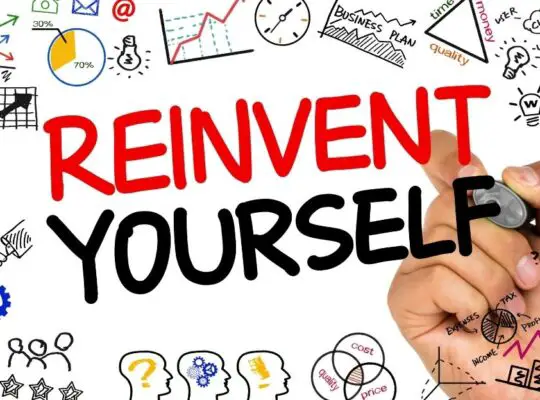What Is Emotional Health?
People who maintain their emotional health have control over their feelings, thoughts, and behaviors. Consequently, they can cope with the challenges of life. They find it easier to keep problems in perspective and don’t struggle to bounce back after running into an obstacle. They have great relationships with others and high self-confidence.
However, that does not mean that emotionally healthy people are constantly happy. They are simply aware of their emotions. They can manage them, whether it’s a negative emotion or a positive one. When you are emotionally healthy, you will still experience the gamut of emotions, and you will still get stressed out. It isn’t a magical cure-all, it’s simply that you can deal with your emotions. They also recognize when a problem is too great to tackle on their own.
It’s an important aspect of your life and it will allow you to recognize your potential. Maintaining your emotional health will allow you to cope with stress and work more productively, which will help you contribute to society and work with others. Moreover, your emotional health can also influence your physical health. Your mental health, emotional health, and physical health are interlinked just like your ears, nose, and throat.
There are two big obstacles that we face on self-improvement journeys. One is that we often lack the motivation needed to start the journey. The other is that we feel too overwhelmed by a goal to start. In both of these cases, a 30-day challenge is an excellent way to overcome those obstacles.
The beauty of the 30-day challenge is that each day is laid out for you and you can keep track of your progress easily. It’s measurable.
The best way to sustain emotional health or any other good behavior is to take small steps that are attainable and realistic. If you say you plan to lose ten pounds this week, you’re probably going to fail. If instead, you think, I’m going to skip dessert and have fruit instead… then, you’re making a small, realistic step. It’s the same when it comes to your emotional health.
Ultimately, maintaining your emotional health is a skill and this 30-day challenge will help you hone yours.
Challenge Guidelines
Before you launch your 30-day challenge, remember these guidelines.
- It isn’t selfish to look after yourself. So, don’t allow anyone to convince you this is selfish. You will have more energy to help and deal with others if you look after yourself. It will also help you feel more present and focused.
- Share your goals with some of your close friends. This is simply to add some accountability to your journey.
- If you skip or miss a day, don’t just give up and walk away from your challenge. This isn’t about perfection, you can simply pick up and carry on the following day.
- Don’t forget to keep it up! Once this challenge is over, your challenge doesn’t end.
30 Day Challenge
Day One – Open Up
There’s a good chance you have something weighing on your mind or, at least something that you really need to talk about. So, this is the day to do that. Seek out a member of your family or a trusted friend, and sit down to talk about something you’re dealing with right now. There is something incredibly healing about talking through your problems.
It’s powerful to talk through problems because even though it might feel as though you’re simply whining, you’re also having a brainstorming session that is helping you process your emotions.
When you keep it quiet, store your problems away, you’re allowing it space that it doesn’t deserve. You’re storing shame and this will fuel anxiety. Don’t do that, talk about it.
Day Two – Find Your Happy Place
Find a quiet room and secret yourself away to it. To do this you will need to find a comfortable position, it might be to sit, lean back, lie down… whatever it is. You want to feel comfortable, comforted, and relaxed. Now that you’re in a comfortable position, you will need to close your eyes and picture yourself in a place that leaves you feeling safe, loved, and happy.
It might be somewhere you have been, like your childhood tree-house. Or, it could be a place that doesn’t really exist anywhere but in your mind – for example, a deserted beach with a bookcase and a self-tending bar. Imagine it and then fill in the sensory details as though you’re grabbing colored pencils to fill in the blanks.
What do you feel, who is with you, what do you smell, see, and experience? This is your happy place, and this is where you can transport yourself when you need to escape the stresses of your day.
Day Three – Unplug Yourself
As wonderful as the internet is, it creates a lot of stress. Right now, we are more divided than ever in a lot of ways and the internet is one of the major causes of that. Social media highlights our differences and it’s a deeply unhealthy distraction.
It only makes you feel worse. Starting today, you have to make a conscious decision to turn your phone off (or at least put it down), leave the tablet in the other room, switch the television off, and live in the present.
You can start with an hour of unplugged time.
You might realize it feels so good that you want to do it more often and perhaps you will even unplug from social media for the entire weekend.
Day Four – Make a Date
A real date, in real, actual life. It doesn’t have to be a romantic date, you can make a friend or family date instead. The point is that we often neglect our social connections as life overwhelms us. Your friends are one of the biggest keys to unlocking emotional health.
Social media is disconnecting you, so it’s up to you to take active steps to reconnect with the people you enjoy spending time with.
Think about someone you haven’t seen in a while, someone you love, who makes you feel happy, comfortable, and connected. Reach out and make a date to meet up and hang out, even if it’s just a cup of coffee.
Day Five – Take Five For Physical Exercise
Physical exercise is another form of therapy, this one to support your emotional health. It is stress-reducing and mood-boosting. The greatest benefit of physical exercise is that the impact is immediate.
Regular exercise is an important aspect of preventing and managing stress and maintaining your emotional health. You can start that process today, right now. Take five minutes out of your day and exercise right now.
High-intensity interval training is a great place to start. You will find a number of apps that offer short, guided, high-intensity workouts. Start there, and from today on you should carve out time to do this on a daily basis.
Day Six – Goodnight, Moon
How do you feel after a poor night’s sleep? Irritable? Stressed out? That’s just for starters. If you experience poor sleep regularly, then you run the risk of anxiety and depression. When you sleep, your brain is downloading the day, it’s your body’s time to recharge, heal, and rest. It’s so important to your overall health, but specifically, to your emotional health.
So, today, your challenge is to go to bed at the right time. Go to bed, and put distractions away, your only job is to sleep. Have a warm bath, a cup of chamomile or, read before bed, but avoid screens. You should be aiming for seven to nine hours of sleep.
Day Seven – Pay it Forward
Give someone else your seat on public transport, pay for suspended coffee in your favorite morning stop, thank someone for a job well done.
These are simple gestures, but they can make a major impact in someone else’s day (and yours, too). It creates a connection with others, strangers in particular, and creates warm, fuzzy feelings for both parties.
Day Eight – Brain Dump
Your brain doesn’t function as efficiently when it’s focused on anxiety, worry or stress. We tend to spend too much time trying to solve unsolvable problems.
If you are someone who worries, then a brain dump into your journal is a good habit to build. It allows you to dump all of the concerns in your head onto paper. Once it’s on that paper, you have to move on and leave it behind you. If that is something that you struggle with, a journal might not be the right place for your brain dump. Instead, use scrap paper, brain dump, then tear it up and throw it away.
Day Nine – Take a Walk
The benefit of a daily walk is two-fold. First of all, when you get your blood pumping on a walk you reduce the stress hormones and your system while boosting endorphins that make you feel good. The second is that spending time in nature is stress-relieving.
It’s immediate relief from stress. If you can escape for a walk in nature during your workday, then make sure you do it. Just a twenty-minute walk will do you the world of good. From today on, set yourself a daily reminder.
Day Ten – A Simple Favor
Your emotional health can be positively influenced by doing someone else a solid. It’s also a selfless act that can benefit the lives of others. How can you do someone a solid today? Can you do the daycare run? Pick up dry cleaning? Babysit for someone? Drop off a casserole to someone you know is struggling?
There are all kinds of different ways you can do someone a simple favor that reaps major benefits.
Day Eleven – Build a Playlist To Boost Your Mood
Think about what music, whether bands, artists or specific songs, that really pumps you up. Create a playlist that will immediately boost your mood. Take time to create another playlist, one that will help you relax and chill out. Music is accessible and it’s powerful.
We connect to it emotionally. Just think about how you feel when your favorite song comes on the radio. Music is powerful in building your emotional health so, use it to your advantage. Instead of seeking out depressing music when you feel down, do the opposite. Put on your mood-boosting playlist.
Day Twelve – Be Serious About Your To-Do List
When you work long hours, you increase your risk of anxiety, stress, and even depression. You can help manage this and your emotional health, by getting serious about your to-do list. At the start of the week, make a to-do list.
Revisit it daily to track your progress and cut out anything that doesn’t really need to be taken care of (by you or at all). A to-do list is a way for you to get things out of your head, and to manage your time and energy as well. It’s a great way to set yourself up for success and you will feel more accomplished as you tick things off as you go.
Day Thirteen – Plan Your Getaways
The reason that we set goals is to move ourselves forward. It keeps us focused on the present, but with an eye toward the future. It also improves your mood when you have something that you are working toward.
If you don’t have something to chase, then it’s easy to feel overwhelmed and stuck. It’s like having a light at the end of a dark tunnel – you know that there is relief down the road and it’s in sight. So, plan your vacations.
You can create an inspiration board if a visual is helpful to you. Look at the world and think about where you would like to go, look at potential dates, book that vacation time, or hey, go ahead and book your flights!
Day Fourteen – Just Say No
There is no trigger of negative emotions greater than the overwhelming weight of responsibilities. Yet, we still struggle to put our foot down and say no. We feel guilty at the prospect of telling someone no.
We feel unsure about how to do it politely or gracefully. You have to stop thinking about it like that – when you say no, you do so to honor yourself. You are saying yes to self-care, you are saying yes to yourself. You don’t have to justify it, you don’t need an excuse. All you have to do today is say no to something that you can’t do (or don’t want to do). More importantly, don’t attempt to justify it – just say “I can’t” or “I wish I could, but I’m too busy”.
Day Fifteen – It’s Time To Laugh
Laughter really is one of the best medicines, especially when it comes to relieving stress. Your only challenge today is to sit down and watch something that you know will make you howl with laughter. It could be your favorite sitcom, a rom-com, or a stand-up show.
Day Sixteen – Start Listening
On the first day, we encouraged you to sit down and talk about something that was stressing you out or upsetting you. Now it’s time to pay it forward. You are two weeks into your challenge and by this point, you should be feeling pretty good.
Now it’s time for you to sit back and listen and connect with someone else. It’s really important that you listen. Do not try to solve their problem, don’t try to diagnose an issue, just make yourself available and listen. Let this person vent until their heart’s content.
Day Seventeen – Breathe
When you focus on breathing it’s a type of meditation. What this does is turns off your fight or flight mode. Breathing through the stress takes you from stressed to relaxed. It might not be as relaxed as you would like, but it will absolutely help you manage your stress and emotional health.
Today, when you face stress, annoyance or any negative emotions, put your focus onto your breath. Exhale fully before you draw in a long, slow breath. There are a variety of counts you can do, and it’s up to you to find what is comfortable for you.
As a starting point, inhale to the count of five and exhale to the same count. Do you feel the difference already?
Day Eighteen – Single-Tasking
There is something meditative about focusing on a single task. Forget multitasking, it’s the worst thing you can do for your emotional health. Today, your challenge is to single-task in the kitchen. Make dinner at home and focus on that alone.
What’s your favorite, somewhat healthy dinner to eat? That’s what you’re going to make. This is a really great exercise to get yourself into meditation because the purpose of it is to completely focus on the present.
You may find benefit in commentating on what you’re doing as you do it like you’re on a cooking show. That will help you remain focused on doing this one thing at this very moment.
Day Nineteen – Coloring Break
There is a very good reason that adult coloring books exist. There is something meditative about it. Today, your challenge is to grab some crayons (or colored pencils) and a coloring book and go for your life.
Repetitive crafts like coloring are a great way to manage stress and lower blood pressure. This is simply another form of meditation that you can call on if you aren’t particularly interested in the traditional forms of meditation.
Day Twenty – Find a Mantra
Negative self-talk is something that feeds off of our unrealistic expectations. We set ourselves up for failure when we chase perfection. It doesn’t exist, but that doesn’t mean you can’t do something. You are great, you’re worth, you will be okay, and you can definitely do this.
What’s your mantra?
Find one that makes you feel empowered, a mantra that fills you with energy, and keep it close to your heart. Write it out and hang it anywhere and everywhere you need to see it. An encouraging statement is more likely to lift your mood and make you feel more productive.
Day Twenty-One – Hobby Horse
When you’re at work or running errands, what would you rather be doing? What do you wish you had more time for? Is it learning Spanish? Blog writing? Hanging out with dogs? Whatever your answer, make sure you take the time to do that today.
Give yourself an hour to completely indulge a hobby or activity that gives you a complete mood boost. Dissatisfaction with life breeds anxiety and stress. When you don’t feel like you’re being purposeful or you feel as though you’re missing out on a passionate pursuit, you’re going to feel low. Pursue a passion.
Day Twenty-Two – Jump Outside the Box
Yesterday was your opportunity to pursue a passion. Today, it’s about jumping outside the box and indulging a silly habit. That’s watching a stupid cartoon that you should have grown out of, reading a trashy novel that you would never tell your friends about or perhaps, playing a video game. There is still value in doing things that bring you comfort and mindless entertainment.
These types of activities are some of the few that we tend to fully indulge in. You don’t try to multitask your way through a video game. In fact, a video game takes up so much of your attention and concentration, it makes it difficult to think about your stress, worries or bad day.
Day Twenty-Three – Silent Counting
This is another excellent meditative method that will help you work through your emotions in the moment. Start counting as a method of distraction, you’re bringing your mind back to the present. This will help if you are overwhelmed by emotions, worrying or overthinking everything.
counting helps you break that cycle in order to refocus your attention on the here and now. There are a number of ways you can do this – you can simply count or, you can look around you and count five things you hear, feel, see or smell.
Day Twenty-Four – Make Repairs
Don’t underestimate the power that things have over your emotional health. The annoying tasks around the house that are in the back of your mind, but you walk on by them daily. When you notice them they annoy the life out of you, but you don’t bother to do anything about it. Think of three things that you’ve pushed to the back burner and ignored. Go and make those repairs today.
Day Twenty-Five – Hugs
Hugs provide you with a boost in oxytocin, which helps fight stress. Hugging will make you feel happier and more relaxed as well. We all crave connection, even in our lowest moments. There are times when we want to be alone, but a hug really helps with balancing our emotions.
If you can’t face hugging a person, you can get that same boost from hugging your pets. Cuddle up if you want to maintain your emotional health. Make an effort to enjoy at least one hug today.
Day Twenty-Six – Gratitude
Gratitude is something that can help you break the cycle of negative thinking. Yes, it feels good to get out all of the negative and vent. If we don’t control that, though, that negativity can easily spiral out of control. To break the cycle, write out at least one thing that you are grateful for.
You can take this exercise to the next level as well, by finding something to be grateful for about an activity, event or situation that you loathe. For example, every Monday morning your boss dominates two hours of your time by insisting on a meeting.
The meeting could easily be condensed to twenty minutes and really, the rest is just a waste of your time. What can you be grateful for in that? It certainly is an opportunity to learn patience. With practice, you can easily find something to be grateful for in every situation.
Day Twenty-Seven – Community Support
Community support is more than having someone at the end of a phone. Spending time with people who are like-minded is an effective way to increase feel-good hormones like oxytocin. A clear and easy way to maintain your emotional health is to have strong community support. Surround yourself with people who lift you up, who energize you, who are positive, and have healthy habits.
Day Twenty-Eight – Enjoy Nature
We briefly touched on how beneficial nature can be, but today this challenge is all about nature. This is especially true for anyone who spends their working day indoors. It really doesn’t matter what you do while you’re outside, it just matters that you’re getting yourself out in nature.
It might be a walk on the beach, a hike in the mountains, a bike ride or, a simple walk. You get exposure to natural sunlight which provides you with the vitamin D that you need and you get to enjoy the beauty of Mother Nature. It’s mood-boosting, thus great for your emotional health.
Day Twenty-Nine – Beware Isolation
When we go through difficult times, it’s common to isolate ourselves from others. We do this because it feels safe, but it’s the most dangerous thing that we can do. You aren’t dealing with your emotions when you shut yourself away, you’re wallowing in them.
While that might be okay for an evening or two, it isn’t a long-term plan. Your best bet is always to reach out to others and talk about the emotions you are going through.
If you are going through something right now, reach out to a friend to talk about it. If you aren’t, but you know someone who is – invite them over to hang out (or go to them).
Day Thirty – Rely on Nutritional Support
There is value to nutritional support when it comes to managing your emotional health. The food that you eat influences your stress levels and your sleeping patterns.
As you know, stress and sleep are closely linked. So, by eating the wrong food you are increasing your stress and making it more difficult to maintain a healthy sleeping pattern.
When your sleep pattern is disrupted, then you are more likely to make the wrong food choices. You are knee-deep in a vicious cycle. So, eating a healthy, balanced diet is absolutely vital in maintaining your emotional health.







